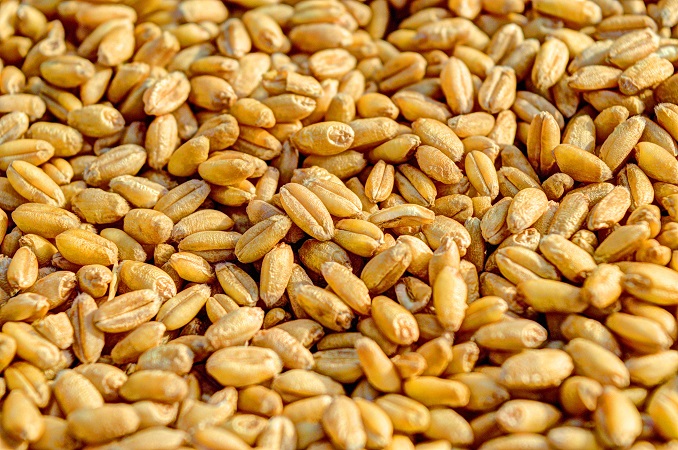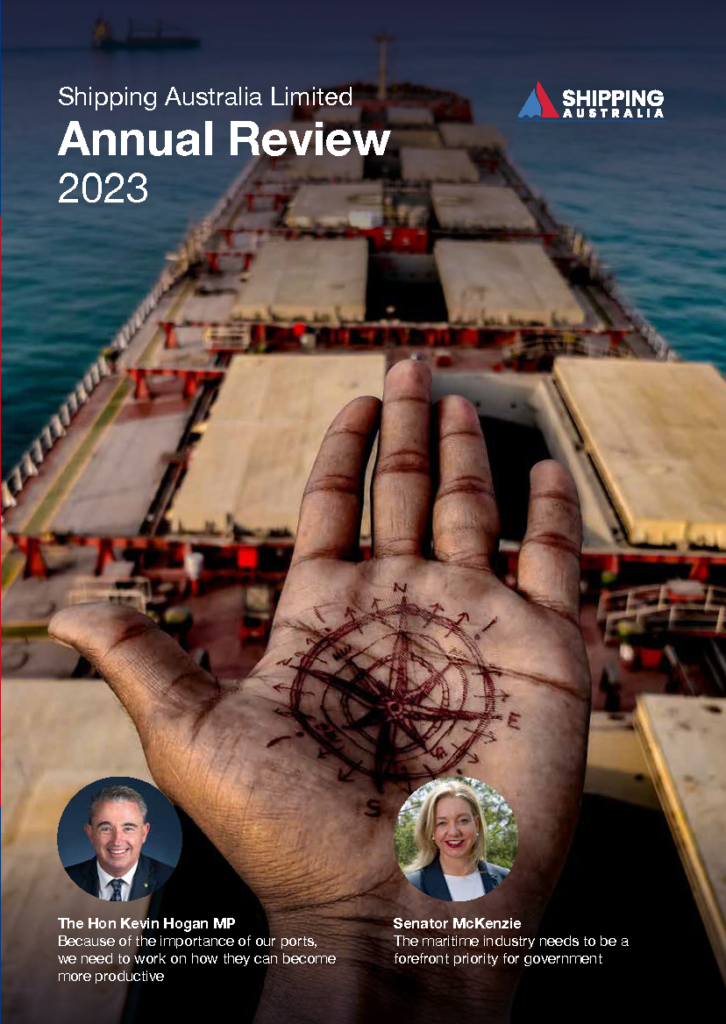
Biosecurity is vital to the health and welfare of Australia’s people, its environment and its agricultural sector. Shipping Australia agrees that biosecurity is fundamentally important to Australia.
The current pest of concern is the Khapra Beetle. The Department of Agriculture, Water and the Environment has repeatedly talked of the cost to the agricultural industries of Khapra Beetle. The Department has said that an outbreak of Khapra Beetle will cost 15.5 billion over 20 years. However, as far as Shipping Australia is aware, there has been no, or little, discussion of how anti-Khapra Beetle measures could affect international trade and ocean shipping.
Unhindered international trade is essential to Australia and Australian families
Shipping Australia would like to point out vital importance of international trade, and therefore the vital importance of ocean shipping, to Australia. Let us spell out just how vitally important that trade is:
- exports of goods and services accounts for about 24.1% of our GDP
- imports of goods and services accounts for about 21.6% of our our GDP
- international trade therefore accounts for about 45.7% of Australia’s GDP
- nearly all physical goods and commodities that move in or out of this country does so by sea – that’s 99.92% by volume and about 84% by value of everything
- directly or indirectly, Australia’s seaborne trade is the major driver and foundation of this country’s logistics industries. Together, those industries employ about 9% of the total Australian workforce
No matter where you live, no matter what you do for a living and no matter how far you live from the sea, international trade – and therefore ocean shipping – is to the interests of your family and to all Australians.
A vitally important principle
Of course, a lot of Australia’s freight volumes are accounted for by iron ore, coal and liquefied natural gas. Khapra Beetle, being a grain-eater, doesn’t exactly chow down on any of those commodities. But there’s a vitally important principle here that must be considered and taken into the account no matter the nature of the biosecurity threat, whether that’s Asian Gypsy Moth, Brown Marmorated Stink Bug, Khapra Beetle or Coronavirus.
And that principle is this: any biosecurity regulation must not unduly or unreasonably hinder trade or delay ocean-going ships because, indirectly or directly, nearly every vital aspect of our national existence relies upon international trade, ocean shipping and global freight.
Essential features for biosecurity regulation
Readers of the Shipping Australia newsletter and website will know of the biosecurity threat posed to Australia’s agricultural industries by the Khapra Beetle. Shipping Australia, of course, acknowledges the threat. And, specifically in relation to any rules, laws or regulations under the Department of Agriculture, Water and the Environment’s Phase 6A measures to counter the Khapra Beetle threat, Shipping Australia considers that the rules should:
• be based on genuine and good-faith consultation with all key stakeholders
• be based on open and transparent consultation
• be evidence-based
• consider and protect the interests of the general Australian economy and Australia’s international trade
• consider and protect the interests of the ocean shipping industry
• be directly proportional to the threat
• be limited to no further than is absolutely necessary in scope, duration, cost and the burden of work or effort.
Specifically, in relation to the carriage of cargo by the ocean shipping companies, any Phase 6A Khapra-focused laws, rules, regulation or legislation should:
• not unduly delay the movement of any ship or ships
• not unduly impose any cost or costs on any ship or ships
Cause for concern
Unfortunately, as the Brown Marmorated Stink Bug experience has shown, there is cause for concern.
In BMSB seasons gone by, there was a lack of onshore treatment for BMSB (as, indeed, there will be a lack of onshore options for treatment of Khapra by order of the Department).
Inspections of car carriers for BMSB took two to four hours. If any bugs were found (alive or dead) they were sent to entomologists for review. Obviously, it took time for a sample of bugs to get from the wharf to the entomologist and for the entomologists to respond. In the BMSB seasons, the insect-experts (entomologists) initially only worked office hours. There was a later change to an 18:00 to 22:00 weekday roster and a 09:00 to 17:00 weekend roster. If that’s replicated now with Khapra, then there is a still a huge 16 hour gap overnight from finish time on a Saturday to starting up time on a Sunday.
Why is this a big thing?
Well, shipping works 24/7. The non-sailing cost of a containership of the kind that typically calls in Australia is currently just over AUD$52,000 a day*. That’s just over AUD$4,700 an HOUR at the current rates.
A 16-hour Saturday-to-Sunday delay would at, current rates, set the ship back by at least AUD$75.6k… and that’s almost certainly an under-estimate because it doesn’t take into account lost freight-earning opportunities or other wasted costs. In the BMSB seasons, there were also delays because there simply weren’t enough entomologists to handle the workload. As can now be appreciated, any delays waiting for entomologists would have then, and will if replicated now, cost a fortune.
Other parties will be adversely affected by ship delays too. Such delays lead to ship-bunching. Any truck and warehouse operator will tell you there are a heap of adverse landside logistics problems when ship-bunching occurs.
During the previous BMSB seasons there was also a litany of other problems with software, staffing levels, changing policies, delays in the release of cargo and many, many, more. A wide variety of supply chain stakeholders were adversely affected, including importers, customs brokers, freight forwarders and consignees among others.
The independent Inspector-General of Biosecurity, Dr Helen Scott-Orr, said it best in her report Effectiveness of biosecurity measures to manage the risks of brown marmorated stink bugs entering Australia**: “The BMSB response in 2018–19 stretched Australia’s border biosecurity system close to breaking point and had severe impacts on sections of the shipping and importing industries”.
Verified Gross Mass-type solution
Shipping Australia further considers that, just like mandatory Verified Gross Mass declarations are a pre-requisite of loading, a similar approach should be developed in which overseas exporters or their agents will have to provide documentation to the shipping line as a pre-requisite to loading a container onto a ship for carriage to Australia.
In the event that appropriate certification is not provided to the ocean shipping carrier, then the carrier should be entitled to decline to load the container. This approach would prevent undue delays and costs to ships.
Irrespective of any position in this article, Shipping Australia notes and asserts that that each individual shipping line has, and retains, the absolute right and ability to decide its own policies at all times. Shipping Australia supports the concept of a robust biosecurity system from Australia; nothing in this article supports any position to the contrary.
*NOTE: shipping costs are derived from publicly available data involving many different variables. One particularly important variable is the passage of time and the figure given above is an approximate estimation as of 19 March 2021.


